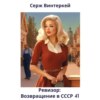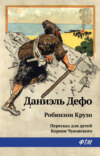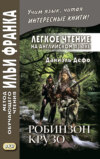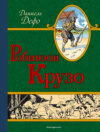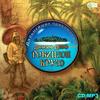Читать книгу: «A New Voyage Round the World by a Course Never Sailed Before»
It has for some ages been thought so wonderful a thing to sail the tour or circle of the globe, that when a man has done this mighty feat, he presently thinks it deserves to be recorded like Sir Francis Drake's. So soon as men have acted the sailor, they come ashore and write books of their voyage, not only to make a great noise of what they have done themselves, but pretending to show the way to others to come after them, they set up for teachers and chart makers to posterity. Though most of them have had this misfortune, that whatever success they have had in the voyage, they have had very little in the relation; except it be to tell us, that a seaman when he comes to the press, is pretty much out of his element, and a very good sailor may make but a very indifferent author.
I do not in this, lessen the merit of those gentlemen who have made such a long voyage as that round the globe; but I must be allowed to say, as the way is now a common road, the reason of it thoroughly known, and the occasion of it more frequent than in former times, so the world has done wondering at it; we no more look upon it as a mighty thing, a strange and never heard of undertaking; this cannot be now expected of us, the thing is made familiar, every ordinary sailor is able to do it, if his merchants are but qualified to furnish him for so long a voyage; and he that can carry a ship to Lisbon, may with the same ease carry it round the world.
Some tell us, it is enough to wonder at a thing nine days, one would reasonably then conclude, that it is enough that sailing round the world has been wondered at above a hundred years. I shall therefore let the reader know, that it is not the rarity of going round the world that has occasioned this publication, but if some incidents have happened in such a voyage, as either have not happened to others, or as no other people, though performing the same voyage have taken notice of, then this account may be worth publishing, though the thing, viz. The Voyage round the World, be in itself of no value.
It is to be observed, of the several navigators whose Voyages round the World have been published, that few, if any of them, have diverted us with that variety which a circle of that length must needs offer. We have a very little account of their landings, their diversions, the accidents which happened to them, or to others by their means; the stories of their engagements, when they have had any scuffle either with natives, or European enemies, are told superficially and by halves; the storms and difficulties at sea or on shore, have nowhere a full relation; and all the rest of their accounts are generally filled up with directions for sailors coming that way, the bearings of the land, the depth of the channels, entrances, and bars, at the several ports, anchorage in the bays, and creeks, and the like things, useful indeed for seamen going thither again, and how few are they? but not at all to the purpose when we come expecting to find the history of the voyage.
Another sort of these writers have just given us their long journals, tedious accounts of their log-work, how many leagues they sailed every day; where they had the winds, when it blew hard, and when softly; what latitude in every observation, what meridian distance, and what variation of the compass. Such is the account of Sir John Narborough's Voyage to the South Seas, adorned with I know not how many charts of the famous Strait of Magellan, a place only now famous for showing the ignorance of Sir John Narborough, and a great many wise gentlemen before him, and for being a passage they had no need to have troubled themselves with, and which nobody will ever go through anymore.
Such also are the Voyages of Captain John Wood, to Nova Zemla, at the charge of the public, in King Charles the Second's time, and Martin Frobisher to the North-West Passages, in Queen Elizabeth's time; all which, are indeed full of their own journals, and the incidents of sailing, but have little or nothing of story in them, for the use of such readers who never intend to go to sea, and yet such readers may desire to hear how it has fared with those that have, and how affairs stand in those remote parts of the world.
For these reasons, when first I set out upon a cruising and trading voyage to the East, and resolved to go anywhere, and everywhere that the advantage of trade or the hopes of purchase should guide us, I also resolved to take such exact notice of everything that past within my reach, that I would be able, if I lived to come home, to give an account of my voyage, differing from all that I had ever seen before, in the nature of the observations, as well as the manner of relating them. And as this is perfectly new in its form, so I cannot doubt but it will be agreeable in the particulars, seeing either no voyage ever made before, had such variety of incidents happening in it, so useful and so diverting, or no person that sailed on those voyages, has thought fit to publish them after this manner.
Having been fitted out in the river of Thames so lately as the year 1713, and on a design perhaps not very consistent with the measures taking at that time for the putting an end to the war, I must be allowed to own I was at first obliged to act not in my own name, but to put in a French commander into the ship, for the reasons which follow, and which those, who understand the manner of trade upon closing the late war, I mean the trade with Spain, will easily allow to be just and well grounded.
During the late war between Great Britain and her confederates on one side, and the united crowns of France and Spain on the other, we all know the French had a free trade into the South Seas; a trade carried on with the greatest advantage, and to the greatest degree, that any particular commerce has been carried on in the world for many ages past; insomuch, that we found the return of silver that came back to France by those ships, was not only the enriching of the merchants of St. Malo, Rochelle, and other ports in France, some of whom we saw get immense estates in a few years, even to a million sterling a man; but it was evident, the King of France himself was enabled, by the circulation of so much bullion through his mints, to carry on that war with very great advantage.
It was just at the close of this war, when some merchants of London, looking with envy on the success of that trade, and how the French, notwithstanding the peace, would apparently carry it on, for some years at least, to infinite advantage, began to consider whether it might not be possible to come in for a portion of it with France, as they were allied to Spain, and yet go abroad in the nature of a private cruiser.
To bring this to pass, it was thought proper, in the first place, to get a share if possible, in a new design of an East India trade in Flanders, just then intended to be set up by some British merchants, by the assistance of an imperial charter, or at least under colour of it: and so we might go to sea in a threefold capacity, to be made use of as occasion might present, viz., when on the coast of New Spain we sought to trade, we were Frenchmen, had a French captain, and a sufficient number of French seamen, and Flemish or Walloon seamen, who spoke French, so to appear on all proper occasions. When at sea we met with any Spanish ship worth our while, we were English cruisers, had letters of mart from England, had no account of the peace, and were fitted for the attack. And when in the East Indies we had occasion to trade, either at the English or Dutch settlements, we should have imperial colours, and two Flemish merchants, at least in appearance, to transact everything as we found occasion. However, this last part of our project failed us, that affair not being fully ripe.
As this mysterious equipment may be liable to some exceptions, and perhaps to some inquiries, I shall for the present conceal my name, and that of the ship also. By inquiries, I mean inquiries of private persons concerned; for, as to public inquiries, we have no uneasiness, having acted nothing in contradiction to the rules and laws of our country; but I say, as to private persons, it is thought fit to prevent their inquiries, to which end, the captain, in whose name I write this, gives me leave to make use of his name, and conceal my own.
The ship sailed from the river the 20th of December, 1713, and went directly over to the coast of Flanders, lying at an anchor in Newport Pitts, as they are called, where we took in our French Captain Jean Michael Merlotte, who, with thirty-two French seamen, came on board us in a large snow from Dunkirk, bringing with them one hundred and twenty-two small ankers or rundlets of brandy, and some hampers and casks of French wine in wickered bottles. While we were here, we lay under English colours, with pendants flying, our ship being upwards of five hundred ton, and had forty-six guns mounted, manned with three hundred and fifty-six men; we took the more men on board, because we resolved, as occasion should present, to fit ourselves with another ship, which we did not question we should meet with in the South Seas.
We had also a third design in our voyage, though it may be esteemed an accident to the rest, viz., we were resolved to make some attempts for new discoveries, as opportunity offered; and we had two persons on board who were exceeding well qualified for our direction in this part, all which was derived from the following occasion.
The person who was principally concerned in the adventure was a man not only of great wealth, but of great importance; he was particularly addicted to what we call new discoveries, and it was indeed upon his genius to such things, that the first thought of the voyage was founded. This gentleman told me, that he had already sent one ship fully equipped and furnished for a new attempt upon the North-West or North-East passages, which had been so often in vain tried by former navigators; and that he did not question the success, because he had directed them by new measures, and to steer a course that was never attempted yet; and his design in our voyage was to make like discoveries towards the South pole; where, as he said, and gave us very good reasons for it, he did not doubt but we might discover, even to the pole itself, and find out new worlds and new seas, which had never been heard of before.
With these designs, this gentleman came into the other part of our project, and contributed the more largely, and with the more freedom, to the whole, upon that account; in particular, all the needful preparations for such discoveries were made wholly at his expense, which I take notice of here, as being most proper in the beginning of our story, and that the reader may the less wonder at the particular way we took to perform a voyage which might with much more ease have been done by the usual and ordinary way.
We sailed from the coast of Flanders the 2nd of January, and, without any extraordinary incident, made the coast of Galway, in Ireland, the 10th, where we stayed, and took in a very extraordinary store of provisions, three times as much as usual, the beef being also well pickled or double packed, that we might have a sufficient reserve for the length of our voyage, resolving also to spare it as much as possible.
We had a very rich cargo on board, consisting of all sorts of British manufactures suitable for the Spanish trade in their West Indies; and, as we aimed at nothing of trade till we came to the Spanish coast, we sailed directly for the Canary Islands: having not fully resolved whether we would make our voyage to the South Seas first, and so round the globe by the East Indies, as has been the usual way, or whether we would go first by the East Indies, and upon the discoveries we were directed to, and then cross the great Pacific Ocean to the west coast of America, as was at last resolved.
We made the Canaries, the 11th of February; and, coming to an anchor there to take in some fresh water, we put out French colours, and sent our boat on shore, with a French boatswain and all French seamen, to buy what we wanted: they brought us on board five butts or pipes of wine, and some provisions, and having filled our water, we set sail again the 13th. In this time we called a council among ourselves, by which way we should go.
I confess I was for going by the Cape of Good Hope first, and so to the East Indies: then, keeping to the south of Java, go away to the Moluccas, where I made no doubt to make some purchase among the Dutch Spice Islands, and so away to the Philippines; but the whole ship's company, I mean of officers, were against me in this scheme, although I told them plainly, that the discoveries which would be made in such a voyage as that, were the principal reasons why our chief owner embarked in the adventure, and that we ought to regard the end and design of our voyage; that it would certainly in the conclusion amount to the same, as to trade, as if we went the usual way, seeing the places we were to go to were the same one way as the other, and it was only putting the question which we should go to first; that all the navigators, on such voyages as these, went by the South Seas first, which would be no honour to us at all: but, if we went by the East Indies first, we should be the first that ever went such a voyage, and that we might make many useful discoveries and experiments in trying that course; that it would be worth our while, not only to go that way, but to have all the world take notice of it, and of us for it.
I used a great many arguments of the like nature, but they answered me most effectually, with laying before me the difficulties of the voyage, and the contrary methods of trade, which, in a word, made the going that way impracticable: First, the difficulty of the voyage, over the vast ocean called the Pacific Sea, or South Sea, which, if we kept a southern latitude, and took the variable winds, as we should find them, as I proposed to do, might very well be a voyage of six or eight months, without any sight of land, or supply of provisions or water, which was intolerable; that, as to trade, it was preposterous, and just setting the voyage with the bottom upward; for as we were loaden with goods, and had no money, our first business, they said, was to go to the South Seas, where our goods were wanted, and would sell for money, and then to the East Indies, where our money would be wanting, to buy other goods to carry home, and not to go to the East Indies first, where our goods would not sell, and where we could buy no other for want of money.
This was seemingly so strong a way of reasoning, that they were all against me, as well French as English, and even the two agents for discoveries submitted to it; and so we resolved to stand away from the Canaries to the coast o Brazil, thence upon the eastern coast of South America to Cape Horn, and then into the South Seas; and, if we met with anything that was Spanish by the way, we resolved to make prize of it, as in a time of war.
Accordingly, we made the coast of Brazil in twenty-six days, from the Canary Islands, and went on shore at Cape St. Augustine, for fresh water; afterwards we put into the bay of All Saints, got some fresh provisions there, and about an hundred very good hogs, some of which we killed and pickled, and carried the rest on board alive, having taken on board a great quantity of roots and maize, or Indian corn, for their food, which they thrived on very well.
It was the last of March when we came to the bay, and having stayed there fourteen days, to furnish ourselves with all things we wanted, we got intelligence there, that there were three ships at Buenos Ayres, in the river Rio de la Plata, which were preparing to go for Europe, and that they expected two Spanish men of war to be their convoy, because of the Portuguese men of war which were in Brazil, to convoy the Brazil fleet.
Their having two Spanish men of war with them for their convoy, took away a great deal from the joy we had entertained at the news of their being there, and we began to think we should make little or nothing of it; however, we resolved to see the utmost of it, and, particularly, if our double appearance would not now stand us in some stead.
Accordingly, we went away for the river of Plata, and, as usual, spreading French colours, we went boldly up to Buenos Ayres, and sent in our boat, manned with Frenchmen, pretending to be homeward bound from the South Seas, and in want of provisions.
The Spaniards received us with civility, and granted us such provisions as we wanted; and here we found, to our great satisfaction, that there was no such thing as any Spanish man of war there; but they said they expected one, and the governor there for the King of Spain asked our French officer if we would take one of their ships under our convoy? Monsieur Merlotte answered him warily, that his ship was deep loaden, and foul, and he could not undertake anything; but, if they would keep him company, he would do them what service he could; but that also, as they were a rich ship, they did not design to go directly to France, but to Martinico, where they expected to meet with some French men of war to convoy them home.
This answer was so well managed; though there was not one word of truth in it, that one of the three ships, for the other two were not ready, resolved to come away with us, and, in an evil hour for them, they did so.
To be brief, we took the innocent Spaniard into our convoy, and sailed away to the northward with them, but were not far at sea before we let them know what circumstances they were in, by the following method. We were about half a league a head of them, when our captain bringing to, and hauling up our courses, made a signal to the Spaniards for the captain to come on board, which he very readily did; as soon as he was on board, our captain let him know that he was our prisoner, and all his men, and immediately manning their boat with thirty of our men, we sent them on board their ship, to take possession of her, but ordered them that they should behave civilly to the men on board, and plunder nothing. For we made a promise to the Spanish captain, that his ship should not be plundered, upon condition he would give us a just account of his loading, and deliver peaceably to us what riches he had on board; then we also agreed, that we would restore him his ship, which by the way, we found was chiefly loaden with hides, things of no value to us, and that the ship also was an old vessel, strong, but often doubled, and therefore a very heavy sailer, and consequently not at all fit for our purpose, though we greatly wanted a ship to take along with us, we having, as I have said, both too many men, and being too full of goods.
The Spanish captain, though surprised with the stratagem that had brought him thus into the hands of his enemies, and greatly enraged in his mind at being circumvented, and trepanned out of his ship, yet showed a great presence of mind under his misfortune; and, as I verily believe, he would have fought us very bravely, if we had let him know fairly what we were, so he did not at all appear dejected at his disaster, but capitulated with us as if he had been taken sword in hand. And one time, when Captain Merlotte and he could not agree, and the Spanish captain was a little threatened, he grew warm; told the captain that he might be ill used, being in his hands, but that he was not afraid to suffer whatever his ill fortune had prepared for him, and he would not, for fear of ill usage, yield to base conditions; that he was a man of honour, and if he was so too, he demanded to be put on board his own ship again, and he should see he knew how to behave himself. Captain Merlotte smiled at that, and told him, he was not afraid to put him on board his own ship, and fight for her again, and that, if he did so, he was sure he could not escape him; the Spanish captain smiled too, and told him he should see, if he did, that he knew the way to heaven from the bottom of the sea as well as any other road, and that men of courage were never at a loss to conquer their enemy one way or other; intimating, that he would sink by his side rather than be taken, and that he would take care to be but a very indifferent prize to him, if he was conquered.
However, we came to better terms with him afterwards. In short, having taken on board all the silver, which was about two hundred thousand pieces of eight, and whatever else we met with that was valuable, among the rest his ammunition, and six brass guns, we performed conditions, and sent him into the Rio de la Plata again with his ship, to let the other Spanish captains know what scouring they had escaped.
Though we got a good booty, we were disappointed of a ship; however, we were not so sensible of that disappointment now, as we were afterwards: for, as we depended upon going to the South Seas, we made no doubt of meeting with vessels enough for our purpose. Of what followed, the reader will soon be informed.
We had done our work here, and had neither any occasion or any desire to lie any longer on this coast, where the climate was bad, and the weather exceeding hot, and where our men began to be very uneasy, being crowded together so close all in one ship; so we made the best of our way south.
We met with some stormy weather in these seas, and particularly a north-west blast, which carried us for eleven days a great way off to sea; but, as we had sea-room enough, and a stout strong-built ship under us, perfectly well prepared, tight and firm, we made light of the storms we met with, and soon came into our right way again; so that, about the 4th of May, we made land in the latitude of 45° 12', south.
We put in here for fresh water; and, finding nothing of the land marked in our charts, we had no knowledge of the place, but, coming to an anchor at about a league from the shore, our boat went in quest of a good watering-place; in pursuit of this, they went up a creek about two leagues more, where they found good water, and filled some casks, and so came on board to make their report.
The next day we came into the creek's mouth, where we found six to eight fathom water within a cable's length of the shore, and found fresh water enough, but no people or cattle, though an excellent country for both.
Of this country I made many observations, suitable to the design and desire of our ingenious employer and owner; and those observations are one end of publishing this voyage. I shall mention only one observation here, because I shall have occasion to speak of them hereafter more largely. My observation here is as follows: —
An observation concerning the soil and climate of the continent of America, south of the river De la Plata; and how suitable to the genius, the constitution, and the manner of living of Englishmen, and consequently for an English colony.
The particular spot which I observe upon, is that part of the continent of America which lies on the shore of the North Seas, as they are called, though erroneously, for they are more properly the East Seas, being extended along the east shores of South America. The land lies on the same east side of America, extended north and south from Coasta Deserta, in 42°, to Port St. Julian, in 49½°, being almost five hundred miles in length, full of very good harbours, and some navigable rivers. The land is a plain for several scores of miles within the shore, with several little rising hills, but nowhere mountainous or stony; well adapted for enclosing, feeding, and grazing of cattle; also for corn, all sorts of which would certainly not only grow, but thrive very well here, especially wheat, rye, pease, and barley, things which would soon be improved by Englishmen, to the making the country rich and populous, the raising great quantities of grain of all sorts, and cattle in proportion. The trade which I propose for the consumption of all the produce, and the place whither to be carried, I refer to speak of by itself, in the farther progress of this work.
I return now to the pursuit of our voyage. We put to sea again the 10th of May, with fair weather and a fair wind; though a season of the year, it is true, when we might have reason to expect some storms, being what we might call the depth of their winter. However, the winds held northerly, which, there, are to be esteemed the warm winds, and bringing mild weather; and so they did, till we came into the latitude of 50°, when we had strong winds and squally weather, with much snow and cold, from the south-west and south-west by west, which, blowing very hard, we put back to Port St. Julian, where we were not able to stir for some time.
We weighed again the 29th, and stood south again past the mouth of the Straits of Magellan, a strait famous for many years, for being thought to be the only passage out of the North Seas into the South Seas, and therefore I say famous some ages; not only in the discovery of it by Magellan, a Spanish captain, but of such significance, that, for many years, it was counted a great exploit to pass this strait, and few have ever done it of our nation, but that they have thought fit to tell the world of it as an extraordinary business, fit to be made public as an honour to their names. Nay, King Charles the Second thought it worth while to send Sir John Narborough, on purpose to pass and take an exact survey of this strait; and the map or plan of it has been published by Sir John himself, at the public expense, as a useful thing.
Such a mighty and valuable thing also was the passing this strait, that Sir Francis Drake's going through it gave birth to that famous old wives' saying, viz., that Sir Francis Drake shot the gulf; a saying that was current in England for many years after Sir Francis Drake was gone his long journey of all; as if there had been but one gulf in the world, and that passing it had been a wonder next to that of Hercules cleansing the Augean stable.
Of this famous place I could not but observe, on this occasion, that, as ignorance gave it its first fame and made it for so many ages the most eminent part of the globe, as it was the only passage by which the whole world could be surrounded, and that it was to every man's honour that had passed it; so now it is come to the full end or period of its fame, and will in all probability never have the honour to have any ship, vessel, or boat, go through it more, while the world remains, unless, which is very improbable, that part of the world should come to be fully inhabited.
I know some are of opinion, that, before the full period of the earth's existence, all the remotest and most barren parts of it shall be peopled; but I see no ground for such a notion, but many reasons which would make it appear to be impracticable, and indeed impossible; unless it should please God to alter the situation of the globe as it respects the sun, and place it in a direct, as it now moves in an oblique position; or that a new species of mankind should be produced, who might be as well qualified to live in the frozen zone as we are in the temperate, and upon whom the extremity of cold could have no power. I say, as there are several parts of the globe where this would be impracticable, I shall say no more than this, that I think it is a groundless suggestion.
But to return to our voyage; we passed by the mouth of this famous Strait of Magellan, and those others which were passed through by Le Maire the Dutch sailor afterwards; and keeping an offing of six or seven leagues, went away south, till we came into the latitude of 58°, when we would, as we had tried three days before, have stretched away south-west, to have got into the South Seas, but a strong gale of wind took us at west-north-west, and though we could, lying near to it, stretch away to the southward, yet, as it over-blowed, we could make no westward way; and though we had under us an excellent strong-built vessel, that, we may say, valued not the waves, and made very good work of it, yet we went away to leeward in spite of all we could do, and lost ground apace. We held it out, however, the weather being clear, but excessive cold, till we found ourselves in the latitude of 64°.
We called our council several times, to consider what we should do, for we did but drive to leeward the longer we strove with it; the gale held still on, and, to our apprehensions, it was set in; blowing like a kind of monsoon, or trade-wind, though in those latitudes I know there is no such thing properly called, as a trade-wind.
We tried, the wind abating, to beat up again to the north, and we did so; but it was by running a great way to the east; and once, I believe, we were in the longitude of St. Helena, though so far south, but it cost us infinite labour, and near six weeks' time. At length we made the coast, and arrived again at the Port of St. Julian the 20th of June, which, by the way, is the depth of their winter.
Here we resolved to lay up for the winter, and not attempt to go so far south again at that time of the year, but our eager desire of pursuing our voyage prevailed, and we put out to sea again, having taken in fresh provisions, such as are to be had there; that is to say, seals, penguins, and such like, and with this recruit we put to sea, I say, a second time.
We had this time worse luck than we had before; for, the wind setting in at south-west, blew a storm, and drove us with such force away to sea eastward, that we were never able to make any way to the southward at all, but were carried away with a continued storm of wind, from the same corner, or near it. Our pilot, or master, as we called him, finding himself often obliged to go away before it, which kept us out long at sea, and drove us far to the north-east, eastward, that he advised us to stand away for the Cape of Good Hope; and accordingly we did so, and arrived there the last day of July.
Покупайте книги и получайте бонусы в Литрес, Читай-городе и Буквоеде.
Участвовать в бонусной программе

